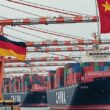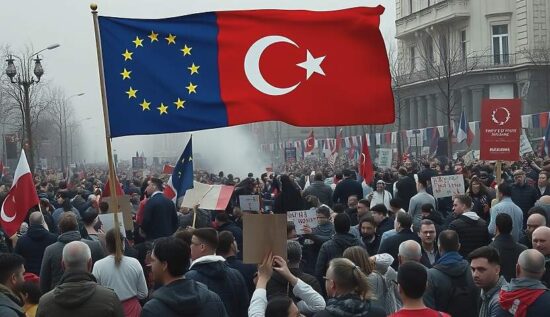Turkey’s Ruling Party Shows No Signs of Democratization
Recep Tayyip Erdogan has been in power for 26 years, initially as Prime Minister and since 2014 as President. His rule has not been marked by the development of democracy or the expansion of freedoms.
The Turkish leader, affiliated with the AKP party, has from the start considered the Kurdish forces, which advocate for autonomy, as his greatest enemy. In particular, the Workers’ Party of Kurdistan (PKK), which is labeled as “terrorist” has been in the crosshairs. A broad accusation has often allowed for the persecution and imprisonment of many of its sympathizers, extending far beyond the PKK.
Several members of the Democratic People’s Party (HDP, now DEM) are still behind bars. This includes the party’s chairman, Selahattin Demirtaş, who was convicted in 2016 of alleged complicity with the PKK, as well as the former co-chair. The HDP is a left-liberal ecological party, connected to the Kurdish regions and struggles, but hardly suspected of subversive activities.
In reality, the repression or the threat of repression affects many areas of society. Trade union activities are closely monitored. And the country was long considered the world leader in the number of imprisoned journalists per capita. Many intellectuals are also under pressure.
The failed coup attempt in July 2016 was used as a pretext for a brutal escalation of repression measures. The uprising of a part of the military, which was later described by the head of state as a “gift from God” – some wonder if this divine gift was actually orchestrated – was immediately instrumentalized to justify immense purges within the army, police, judiciary and educators and academics.
Thousands of officials were convicted and imprisoned and tens of thousands of others were dismissed. All of them were accused of being part of the networks of Fethullah Gülen, a preacher who was once the mentor of Erdogan before he decided to denounce and persecute him.
The head of state, who was re-elected in the second round of the presidential election in May 2023 with a narrow majority (52%), could not avoid a spectacular defeat of his party in the local elections in April 2024. It lost many major cities and failed to win back the capital, Ankara and the largest metropolis, Istanbul, the mayor of which Erdogan once was.
Recent moves he has initiated in the context of negotiations with the life-convicted leader of the PKK, Abdullah Öcalan, do not prevent him from dismissing mayors of cities with predominantly Kurdish populations and replacing them with government-appointed administrators and thus defying millions of voters, as recently happened again.
Against this backdrop, five courts in the country ordered the arrest of the very popular mayor of Istanbul, Ekrem İmamoğlu, who is accused of “corruption” and “supporting the PKK” along with dozens of his employees, elected representatives and leaders of the Republican People’s Party (CHP, Kemalist and a member of the Socialist International). On March 23, a judge confirmed his imprisonment.
This did not prevent the CHP leadership from organizing primary elections to determine its candidate for the presidential election in 2028: On March 23, İmamoğlu received 15.5 million votes from citizens, many of whom were not CHP members. A de facto plebiscite, which is seen as a massive condemnation of the government’s maneuver.
This leaves little doubt: In the opinion of most observers, the mayor of Istanbul is the only person who could challenge Recep Tayyip Erdogan (who could run again in the event of an early election).
Another indication of the president’s anxiety is the fact that on March 18, the university that awarded İmamoğlu the diploma required for the highest state office declared the diploma invalid..





